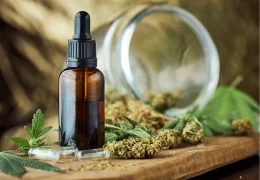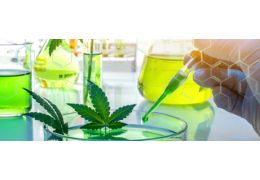As regulations on cannabinoids evolve, 10-OH-HHC is emerging as a legal and promising option. This article aims to...
Blog categories
Search in blog
Popular posts



As regulations on cannabinoids evolve, 10-OH-HHC is emerging as a legal and promising option. This article aims to...

The French National Agency for the Safety of Medicines and Health Products has issued a statement on HHC:
"We have decided to include hexahydrocannabinol (HHC) and two of its derivatives, HHC-acetate (HHCO) and hexahydroxycannabiphorol (HHCP) on the list of narcotic products. As a result, their production, sale and use in particular will be banned in France from 13 June 2023."
The logic was simple: since the effects are comparable to those of THC, and THC is classified as a narcotic, HHC was classified in the same category.
As a reminder, HHC is a cannabinoid just like CBD or THC. It is present in very small quantities naturally in the cannabis plant, more specifically in the seed and pollen.
In 1944, the American chemist Roger Adams succeeded in synthesising it in the laboratory by hydrogenating the THC molecule.
What are the effects of HHC?
As HHC is chemically similar to THC, so too are its effects. Some studies show that HHC is half as strong as THC, while others have shown that it could be much stronger, comparable to morphine.
How is HHC obtained?
Hydrogenation involves mixing THC with hydrogen gas to add two carbon atoms to the molecule, transforming it into HHC. Certain catalysts such as palladium or nickel can be used to speed up the chemical reaction. This is a dangerous operation, carried out in the laboratory. These manufacturing methods are sometimes criticised, even though they are not far removed from those used to make cigarette tobacco.
 What are CBD-A and THC-A?
What are CBD-A and THC-A?
 Is CBD legal in Europe?
Is CBD legal in Europe?
 5 myths or misinformation about CBD
5 myths or misinformation about CBD
 CBD goes mainstream
CBD goes mainstream
 Will HHC soon be banned?
Will HHC soon be banned?